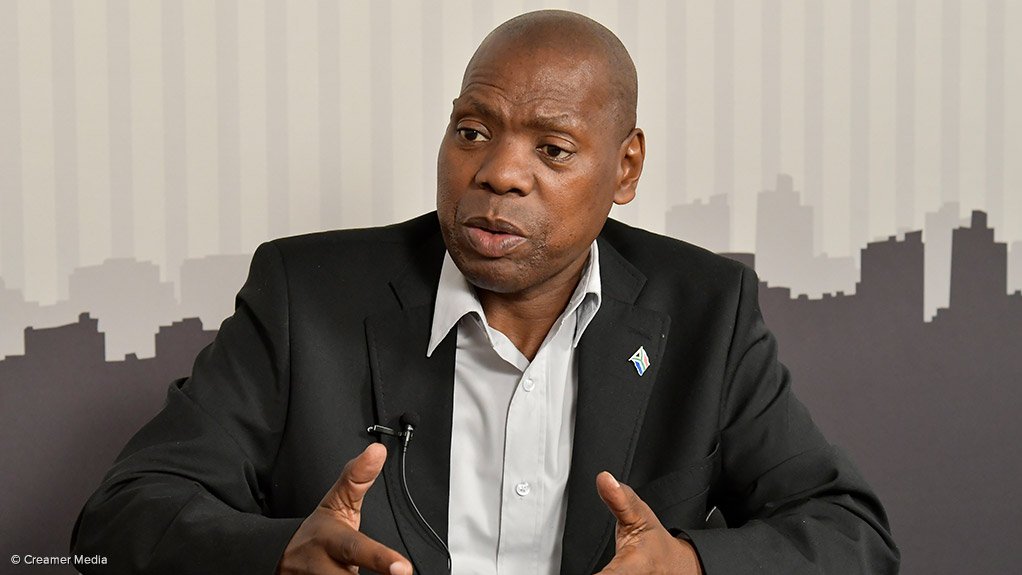/ MEDIA STATEMENT / The content on this page is not written by Polity.org.za, but is supplied by third parties. This content does not constitute news reporting by Polity.org.za.
The recent floods and attendant hardships that befell our compatriots have triggered a number of questions and enquiries about the country’s state of readiness to deal with disasters and other unforeseen events that bring scores of deaths and massive damage to infrastructure.
The quick answer is that we are ready as to deal with unforeseen events of this nature to the extent that is humanly possible and in keeping with our Constitutional mandate to protect the fundamental rights of everyone in South Africa.
The Bill of Bill of Rights superficially spells out how various rights should be protected.
Section 24 of the Constitution specifically guarantees every citizen the right to an environment that is not harmful to their health and well-being and the need to ensure that the environment is protected for the benefit of present and future generations through reasonable legislative and other measures.
The Disaster Management Act 2002 (Act 57 of 2002) was specifically put together to ensure the realisation of this constitutional imperative. Notable is that the Act if founded on the need to ensure prevention, preparedness, mitigation of disasters and emergency response in the face of disaster threatening incidents.
The state of readiness of the country is legally assured and institutionally modelled by the Disaster Management Act and its policy framework, the National Disaster Management Framework of 2005. This stems from the fact that the Disaster Management Act calls for the establishment of disaster management centres at provincial and municipal levels as well as the integration of disaster risk management within the institutional arrangements of all relevant sector departments and other role players.
With these institutional arrangements and various resources set aside for disaster management, the country is able to implement prevention and mitigation measures as well as for emergency response in the face of various incidents and disasters.
However, the success of these measures depends on the extent to which every member of society make efforts to avoid risk and reduce existing risks in their areas of existence. This is because government cannot be everywhere hence the need for every citizen, organisation and other institutions to make efforts to reduce risk as Disaster Risk Prevention and Management is Everybody’s Business.
To be successful, the approach to disaster risk management should be both multi-disciplinary and require multi-sectoral approaches to be successful. This is because the Disaster Management Act of 2002 only serves to coordinate disaster risk reduction measures while various sectoral pieces of legislation serve to mainstream disaster risk management in their daily programmes and projects, such as Water Services legislation, agricultural legislation, weather services legislation, human settlements legislation, roads and transport legislation, fire legislation and others.
There is a distinction between an incident and a disaster. An incident is any occurrence that is being managed but has not been classified and declared as a disaster. A disaster on the one hand, is an occurrence which exceeds the capacity of a particular institution to manage using its own resources and which has been classified as a disaster under section 23 of the Disaster Management Act and declared as such in terms of section 27 as either a national, provincial or a local state of disaster.
One of the questions that comes quite often is on funding after a disaster has been declared. Firstly, the Act requires that once an occurrence has befallen a particular area, the municipality as well as relevant sector departments must activate their contingency plans and funds to deal with such an occurrence. Once their resources have been depleted and their national sector departments do not have funds, they can declare the state of disaster as stated above in order to access emergency grants from the National Disaster Management Centre (NDMC).
The NDMC will then verify the costs and allocate funds to the relevant sector department responsible for the affected service such as roads, human settlements, health or education. The Heads of appropriate departments will be accountable for the effective spending and reporting on expenditure.
When disaster strikes, the human touch becomes more important as well. We need strong and closely knitted neighbourhoods and support one another, as has been happening in KwaZulu-Natal and the Eastern Cape in light of the recent disaster.
The flooding disaster highlights the urgency of being ready for climate change in all respects. How we plan our settlements is very important, and how we maintain our infrastructure, roads, storm water pipes, drains and so on to ensure that they are disaster-ready should reign paramount in our minds because the situation is real. It is not hypothetical.
The Disaster Management Act is clear on the need to give priority attention to prevention, mitigation and preparedness while also making room for response and recovery.
It is critical therefore that disaster management plans form part of the municipal Integrated Development Plans as per the provisions of the Municipal Systems Act 2000 (Act 32 of 2000).
The most important prevention is that there should be a culture of risk avoidance across society.
Disaster Risk Prevention and Management is Everybody’s Business!
Issued by The Department Of Cooperative Governance And Traditional Affairs
EMAIL THIS ARTICLE SAVE THIS ARTICLE ARTICLE ENQUIRY
To subscribe email subscriptions@creamermedia.co.za or click here
To advertise email advertising@creamermedia.co.za or click here











